


Research Team
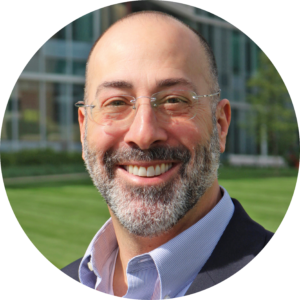
James DuBois, DSc, PhD
Program Director, Principal Investigator
James DuBois is the S.J. Bander Professor of Medical Ethics and Executive Director of the Bioethics Research Center at Washington University School of Medicine. He received doctoral degrees in philosophy and psychology. He is interested in how culture and faith shape views toward new technologies in healthcare. He has worked in secular and faith-based settings and participates in interfaith discussions. He has received over $14 million in funding from the National Institutes of Health and other agencies. He established the Healthcare, Values, and the Spiritual Life (HVS) research program to build a community of researchers who aim to respectfully understand and serve all people.

Lauren Baker, PhD
Co-Investigator and Research Interviewer
Lauren Baker is an Instructor of Medicine at the Bioethics Research Center at Washington University School of Medicine. She earned her Master’s and PhD in Health Care Ethics from Saint Louis University where she received doctoral level training in Catholic moral theology and bioethics. Dr. Baker applies social science research methods to explore complex ethical and social issues in medicine and public health. Currently, she is a Co-Investigator for the Healthcare, Values, and the Spiritual Life Program. Prior to joining Washington University, Dr. Baker worked in immigrant and refugee services, and taught health care and public health ethics courses at Saint Louis University.

Kari Baldwin, MSW
Program Manager and Research Interviewer
Kari Baldwin is a senior project manager in the Bioethics Research Center at Washington University School of Medicine. She completed her master’s degree in social work from the University at Albany, SUNY. She is actively involved in her parish, serving in religious education programs and assisting with trainings. Ms. Baldwin serves as Program Manager for the HVS Research Program, and conducts participant interviews.

Annie Friedrich, PhD, HEC-C
Consultant and Research Interviewer
Annie Friedrich is an assistant professor of bioethics and medical humanities in the Center for Bioethics and Medical Humanities in the Institute for Health & Equity at the Medical College of Wisconsin. She received her PhD in Health Care Ethics from Saint Louis University with a focus on clinical ethics, pediatric ethics, and empirical research methods. She is a certified clinical ethics consultant (HEC-C) and serves as the co-chair of the Children’s Wisconsin ethics committee. In addition, she is an ethics educator and teaches clinical ethics and medical humanities, including topics on religion and spirituality, to medical students and other health professions students.
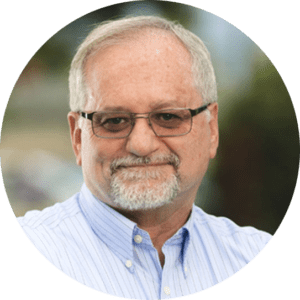
Peter Hill, PhD
Consultant and National Research Advisory Board Member
Peter Hill is Professor of Psychology at Rosemead School of Psychology, Biola University. He is a past president of the American Psychological Association’s Division on the Psychology of Religion and was elected Fellow of the APA in 1998. He received the Distinguished Member Award by the Christian Association for Psychological Studies (CAPS) and has co-authored or co-edited many books including Measures of Religiosity, Baker Encyclopedia of Psychology, The Psychology of Fundamentalism: An Intratextual Approach, The Psychology of Religion: An Empirical Approach, and Psychology of Religion and Workplace Spirituality.
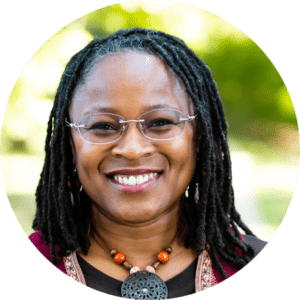
Reverend Gabrielle Kennedy, PAHM, MBA, MDiv
Consultant and National Research Advisory Board Member
The Reverend Gabrielle NS Kennedy served as the Executive Director of Faith & For the Sake of All, which has reorganized as Faith HEALS. As an ordained minister in the African Methodist Episcopal Church (AME) she serves as pastor of Buren Chapel AME Church, Herculaneum, MO. In addition to her non-profit experience, Rev. Gabrielle has worked in commercial and Medicaid Managed Care across the state of Missouri for over 15 years. Rev. Gabrielle believes in the embodied work of her ministry through community collaboration in the areas of health and faith-based social action.

David Nelson, PhD
Consultant and Research Interviewer
Dr. Nelson holds a PhD from Hebrew Union College-Jewish Institute of Religion with a focus on rabbinic literature and thought. He has held faculty positions at several institutions of higher learning, including Brite Divinity School, Texas Christian University, and Washington University in St. Louis. He has published widely in the field of Jewish Studies and serves as Editor-in-Chief of the journal, Hebrew Studies and as co-Chair of the Society of Biblical Literature’s Midrash Section. He is past-president of the Society of Race, Ethnicity, and Religion and past-Editor-in-Chief of the Journal of Race, Ethnicity and Religion. He has lectured widely bringing Judaism into dialogue with other faiths and diverse communities.
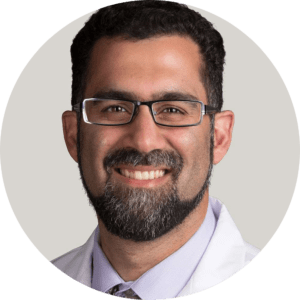
Aasim Padela, MD, MSc, FACEP
Co-Investigator and National Research Advisory Board Member
Aasim Padela is Professor of Emergency Medicine, Bioethics and the Medical Humanities at the Medical College of Wisconsin. His scholarship aims at improving health and healthcare through better accommodating religious values in healthcare delivery. Using Muslim Americans as a model, he studies how religion (i) impacts patient health behaviors and healthcare experiences, (ii) informs the professional identities and workplace experiences of clinicians, and (iii) furnishes bioethical guidance to patients, providers, policymakers, and religious leaders. This knowledge is subsequently mobilized towards educational and policy interventions.
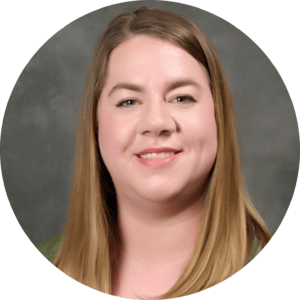
Erin Solomon, PhD
Data Analyst
Erin Solomon is a Senior Scientist in the Bioethics Research Center at Washington University School of Medicine. She received her PhD in social psychology from Saint Louis University, with a secondary concentration in quantitative methods in the behavioral sciences. Dr. Solomon applies her knowledge and experience in methodology and statistics to analyze data for the Healthcare, Values, and the Spiritual Life Program.

Brandie Thurman
Research Interviewer
Brandie Thurman is an Administrative Professional in the Division of General Medical Sciences at Washington University School of Medicine. She completed a BS degree in Health Sciences at Washington University, minoring in African American Studies. She is active in her local assembly as Vice President for the Youth Ministry. She is also appointed as Chief of Staff to the Chairman of the Midwestern District Council (MDC) of the Pentecostal Assemblies of the World Inc. (PAW) and 2nd Vice President of the Midwestern District Council Young Peoples Union. For the HVS Program, Ms. Thurman conducts interviews and serves as a liaison with faith-based participant communities.

Heidi Walsh, MPH, CHES®
Senior Project Manager and Research Interviewer
Heidi Walsh is a senior project manager in the Bioethics Research Center (BRC) at Washington University School of Medicine, where she manages research projects involving ethical, social, and professional issues that affect patients, researchers, and healthcare providers. Ms. Walsh is a Certified Health Education Specialist and Managing Editor of Narrative Inquiry in Bioethics (NIB) — a qualitative research journal that explores current issues in bioethics through personal stories, qualitative research articles, and case studies. Through the Unitarian Universalist Association and the United Church of Christ, Ms. Walsh is a certified facilitator for the Our Whole Lives (OWL) program, which encourages young learners to make informed and responsible decisions about their relationships, health, and behavior in the context of their faith.

Raudah M. Yunus, MBBCH, MPH, DrPH
Consultant and Research Interviewer
Dr. Raudah M. Yunus is currently a Postdoctoral Fellow in Community Health Research and Muslim Bioethics at the Medical College of Wisconsin. She completed her masters and doctorate in Public Health from the University of Malaya in Kuala Lumpur, Malaysia. Prior to that, she studied medicine at Alexandria University in Egypt. Her experiences there kindled her passion and interest to combine health, research, and religion. As a postdoctoral fellow, Dr. Yunus delves into the intersection of bioscience and theology, and researches bioethical issues related to end-of-life care and infertility treatments among the Muslim community in the United States.
National Research Advisory Board
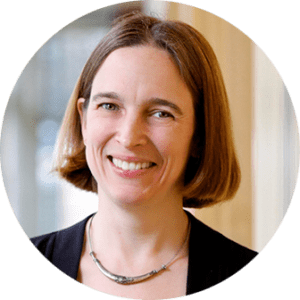
Wendy Cadge, PhD
Wendy Cadge is the Barbara Mandel Professor of Humanistic Social Sciences and Professor of Sociology at Brandeis University. She is an expert in contemporary American religion, especially related to religion in public institutions, religious diversity, religious and moral aspects of healthcare, and religion and immigration. She is the author of two books, Paging God: Religion in the Halls of Medicine and Heartwood: The First Generation of Theravada Buddhism in America. She founded and co-directed the Transforming Chaplaincy Project from 2015 to 2019, and in 2018 launched the Chaplaincy Innovation Lab.
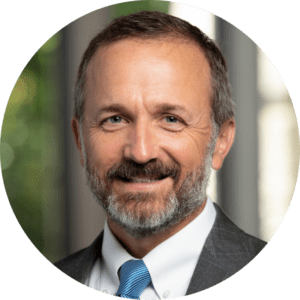
Farr Curlin, MD
Farr Curlin is the Josiah C. Trent Professor of Medical Humanities and Co-Director of the Initiative on Theology, Medicine, and Culture at Duke University. A practicing palliative medicine physician, he also serves the School of Medicine’s Trent Center for Bioethics, Humanities & History of Medicine. At the University of Chicago, Dr. Curlin founded and was co-director of the Program on Medicine and Religion. He has published extensively on medical ethics and professionalism, religion in clinical practice, and the connection between faith and professional virtues in healthcare.

Marie Griffith, PhD
Marie Griffith is the John C. Danforth Distinguished Professor in the Humanities at Washington University in St. Louis. She served for 12 years (2011-2023) as the director of the John C. Danforth Center on Religion and Politics and the editor of the Center’s journal, Religion & Politics. Her research focuses on American Christianity. Her latest book, Making the World Over: Confronting Racism, Misogyny, and Xenophobia in U.S. History, urges a re-reading of the nation’s history that opens up greater complexity than our stock narratives. In her current role, she is a frequent facilitator of interfaith dialogues on controversial topics in US society including controversies in healthcare.

Peter Hill, PhD
Peter Hill is Professor of Psychology at Rosemead School of Psychology, Biola University. He is a past president of the American Psychological Association’s Division on the Psychology of Religion and was elected Fellow of the APA in 1998. He received the Distinguished Member Award by the Christian Association for Psychological Studies (CAPS) and has co-authored or co-edited many books including Measures of Religiosity, Baker Encyclopedia of Psychology, The Psychology of Fundamentalism: An Intratextual Approach, The Psychology of Religion: An Empirical Approach, and Psychology of Religion and Workplace Spirituality.

Reverend Gabrielle Kennedy, PAHM, MBA, MDiv
The Reverend Gabrielle NS Kennedy served as the Executive Director of Faith & For the Sake of All, which has reorganized as Faith HEALS. As an ordained minister in the African Methodist Episcopal Church (AME) she serves as pastor of Buren Chapel AME Church, Herculaneum, MO. In addition to her non-profit experience, Rev. Gabrielle has worked in commercial and Medicaid Managed Care across the state of Missouri for over 15 years. Rev. Gabrielle believes in the embodied work of her ministry through community collaboration in the areas of health and faith-based social action.

Rabbi Claudio J. Kogan, MD, MBE, MEd
Rabbi Claudio Kogan is Director of the Bioethics Program at Baptist health South Florida. He previously was the Director of the Institute of Bioethics and Social Justice and Associate Professor of Internal Medicine at the University of Texas Rio Grande Valley School of Medicine. In Texas, he did extensive work with immigrant health and health disparities. He is a native of Buenos Aires, Argentina and has traveled around the world promoting interfaith dialogue. He sees deep connections between his work as a physician, rabbi, and bioethicist.

Aasim Padela, MD, MSc, FACEP
Aasim Padela is Professor of Emergency Medicine, Bioethics and the Medical Humanities at the Medical College of Wisconsin. He serves on the Council of Faith for the Clinical and Translational Science Institute at MCW, and holds a faculty appointment in the Center for Bioethics and Medical Humanities in the Institute for Health and Equity at MCW. In addition to maintaining an active clinical, research, and bioethics practice at MCW, he is an internationally-recognized thought and research leader in the fields of Muslim health and healthcare disparity research, and Islamic bioethics.
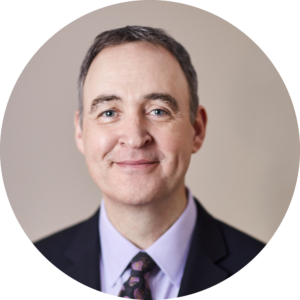
Diarmuid Rooney, M.S.Psych., M.T.S., D.Soc.Admin
Diarmuid Rooney is senior director of ministry formation at the Catholic Health Association of the United States (CHA). He works closely with leaders in Catholic healthcare of diverse faiths and traditions to provide formation opportunities. Formation helps leaders to integrate into their work the dynamics of vocation, tradition, spirituality, ethics, Catholic social teaching, and discernment. He has lived in both Benedictine and Buddhist monasteries and is committed to inter-spiritual dialogue and practice. He has developed extensive training materials to assist healthcare professionals with integrating spirituality into their work.
